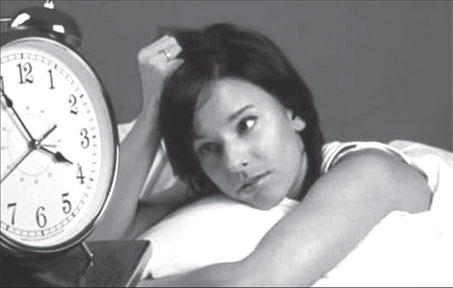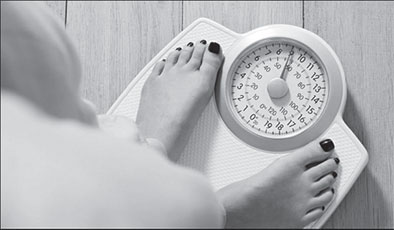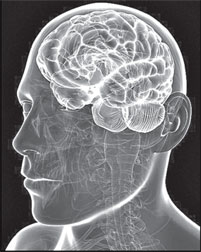|

Sleep disturbance?:
The young are vulnerable
Are you struggling with a sleep problem? Do you wake up constantly?
Is your sleep disturbed often? Then you probably have a sleep disorder.
Depending on a number of factors including illness, pain, certain
medications, your hormones, gender and age, stress, sleep disturbances
are now a common problem especially among young persons.
While opinions are divided concerning the causes contributing to this
phenomenon, medical experts believe that a combination of several
factors is to blame.
 They include the strides in technological development which have
spawned television, internet, computer games and other hi tech gadgets,
the constant pressure put by parents on their children to perform well
at school, stress due to too much homework, lack of exercise, as well as
watching the television and playing computer games for long hours, lie
at the heart of the problem. They include the strides in technological development which have
spawned television, internet, computer games and other hi tech gadgets,
the constant pressure put by parents on their children to perform well
at school, stress due to too much homework, lack of exercise, as well as
watching the television and playing computer games for long hours, lie
at the heart of the problem.
All these have led to a lack of sufficient hours of sleep and mental
over stimulation resulting in sleep disturbances.
Consultant Paediatrician, Lady Ridgeway Hospital and Kandy Teaching
Hospital Dr Anuruddha Padeniya explains in this interview with The
Sunday Observer, what factors have led to sleep disturbances in young
persons, their health impacts, and how they could be prevented.
He emphasises the fact that it is the parent’s responsibility to
resolve these problems by ensuring their children get a sufficient quota
of sleep, by sending them to bed early and limiting their time spent
before the television and computer games.
Excerpts…
Question: Sleep disturbance is said to be a common disorder
especially among young people. What is sleep disturbance?
Answer: Sleep disturbance includes disorders of initiating and
maintaining sleep, disorders of excessive somnolence, disorders of sleep
- wake schedule, and dysfunctions associated with sleep, sleep stages,
or partial arousals (parasomnias).
Q. Is sleep disturbance a chronic condition? Or a temporary
one caused by certain factors such as stress, overwork and fatigue? What
are the main causes?
A. It could be either a chronic or a temporary condition.
Factors that can disturb your child’s sleep are arising early in the
morning to go to school, staying awake late for school work and tuition
classes, extreme academic stress on child, disturbances from cell
phones, TV, Computers and urbanisation. Children with disabilities have
more sleep problems than others.
Q. Is it genetic?
A. Some sleep disorders may have a genetic predisposition.
Boys have a higher tendency to develop obstructive Sleep apnea.
Q. You were recently quoted as saying that over 30 percent of
Lankan School children suffer from this. Why? Is it a recent development
or an illness that has not been diagnosed until now?
A. In Sri Lanka usually complaints regarding sleep problems
are not presented to medical officers due to lack of awareness of sleep
disorders among parents. So most probably it has not been diagnosed
until now. Problems to do with a child’s sleep might not be noticed for
some time and parents often find it harder to detect that something is
wrong.
Q. What age groups of school children are most at risk?
A. More than one-third of school going children may have sleep
problems.
Q. What are the symptoms? Are they easily detected in a
routine visit to the doctor?
A. Irritability and sleepy during the day.
Having it difficult to stay awake while playing, watching TV or
reading, showing difficulty in concentrating, looking tired always,
reacting slowly and falling grades recently.
Q. Can a blood test or X-ray reveal this condition?
A. Some of the causative factors of obstructive sleep apnea
can be seen in X- ray (e.g. lymphoid hyperplasia and some other
anatomical defects)
Q. In some countries, it is said there are sleep apnea
machines and even pillows that are given to patients to help them
breathe normally? Are they available here as well?
A. CPAP (Continuous Positive Airway Pressure) machines are
available in the private sector.
Q. Can surgery reverse this condition?
A. Yes. Some causative factors of obstructive sleep apnea can be
corrected.
Q. Is it a serious disorder? What are the health implications
on (a) young children (b) adults? Can it lead to heart trouble in later
life?
A. Sleep practice has an impact on growth and development of
the child. Sleep deprivation can lead to Hypertension and certain other
diseases in later life.
Q. Is it linked to depression? And other psychological
problems such as overeating or under eating? Sleepwalking
(somnambulism)?
A. Yes. Childhood depression and sleep disturbance are linked
with each other.
Q. Does it affect work output? Concentration powers? School
performance?
A. Disturbed sleep at night makes harder for children to
function during the day. It raises the risk of problems with how he
behaves and learns. Disturbed sleep has a great impact on education and
his/ her learning, creativity and personality.
Q. Can someone suffering from it take part in sports and other
extra- curricular activities?
A. Those activities are impaired due to poor attention span
and aggressiveness.
Q. Is a chronic sufferer constantly drowsy?
A. Yes. They are irritable and sleepy during the day.
Q. Are there different types of sleep disorders? What are
they?
A. Yes. They are insomnia, nightmares, obstructive sleep
apnea, and narcolepsy, sleep walking, sleep terrors, confusional
arousals, nocturnal bed wetting, periodic limb movement disease,
nocturnal seizures.
Q. How can it be prevented?
A. Early identification of the sleep disorder and probable
causes, improve sleep hygiene.
Q. Will eating well balanced meals, avoiding friend food help?
Or is having enough sleep the only answer?
A. Those practices which are collectively known as sleep
hygiene will definitely help your child to have a normal good night
sleep and good day time alertness.
Q. You have said that parents have an important role to play
in preventing this disorder? How?
A. The information you provide to the doctor will help him to
reach a diagnosis. You can evaluate your child's sleeping problems as
Bedtime problems, excessive day time sleepiness, awakening during the
night, regularity and duration of sleep, snoring (BEARS Sleeping
Screening Algorithm)
You can also state the behavioural changes you observe in your child
such as reduced attention at school, sleepiness during day time,
irritability, hyperactivity, and bed wetting. Mention if there is any
family history of sleep disorder.
Alternative therapies may help lower blood pressure
Alternative therapies such as aerobic exercise, resistance or
strength training, and isometric hand grip exercises may help reduce
your blood pressure.
In a new scientific statement published in the journal Hypertension,
alternative approaches is reported to be able to help people with blood
pressure levels higher than 120/80 mm Hg and those who can't tolerate or
don't respond well to standard medications.
 However, alternative therapies shouldn't replace proven methods to
lower blood pressure - including physical activity, managing weight, not
smoking or drinking excess alcohol, eating a low sodium balanced diet
and taking medications when prescribed, the association said. However, alternative therapies shouldn't replace proven methods to
lower blood pressure - including physical activity, managing weight, not
smoking or drinking excess alcohol, eating a low sodium balanced diet
and taking medications when prescribed, the association said.
High blood pressure - a major risk factor for heart attack and stroke
- affects more than 26 percent of the population worldwide and
contributes to more than 13 percent of premature deaths.
An expert panel assessed three alternative remedy categories:
exercise regimens; behavioral therapies such as meditation; and
non-invasive procedures or devices including acupuncture and
device-guided slow breathing. The panel did not review dietary and
herbal treatment.
“There aren't many large well-designed studies lasting longer than a
few weeks looking at alternative therapies, yet patients have a lot of
questions about their value,” said Robert D. Brook, Chair of the panel
and an associate professor of medicine at the University of Michigan in
Ann Arbor. “A common request from patients is, ‘I don't like to take
medications, what can I do to lower my blood pressure?’ We wanted to
provide some direction.”
The alternative therapies rarely caused serious side effects and
posed few health risks, but the analysis revealed some approaches were
more beneficial than others and could be part of a comprehensive blood
pressure-lowering treatment plan.
Brook and colleagues reviewed data published in 2006-11, including
1,000 studies on behavioural therapies, non-invasive procedures and
devices, and three types of exercise (aerobic, resistance or weight
training and isometric exercises, most commonly hand-grip devices).
The studies also examined the effects of yoga, different styles of
meditation, biofeedback methods, acupuncture, device-guided breathing,
relaxation and stress techniques.
The panel's find: All three types of exercise reduced blood pressure.
Walking programs provided modest benefit while, somewhat surprisingly,
four weeks of isometric hand grip exercises resulted in some of the most
impressive improvements - a 10 percent drop in systolic and diastolic
blood pressure. However, isometric exercise should be avoided among
people with severely-uncontrolled high blood pressure (180/110 mm Hg or
higher).
- Behavioural therapies such as biofeedback and transcendental
meditation may help lower blood pressure by a small amount. However,
there's not sufficient data to support using other types of meditation.
- Strong clinical evidence is also lacking to recommend yoga and
other relaxation techniques for reducing blood pressure.
- There isn't enough evidence to recommend acupuncture for lowering
blood pressure, particularly given the complexities involved in
employing this treatment. However, device-guided slow breathing did
prove effective in lowering blood pressure when performed for 15-minute
sessions three to four times a week.
“Most alternative approaches reduce systolic blood pressure by only
2-10 mm Hg; whereas standard doses of a blood pressure-lowering drug
reduce systolic blood pressure by about 10-15 mm Hg,” Brook said.
“So, alternative approaches can be added to a treatment regimen after
patients discuss their goals with their doctors.”
Given the global public health burden of high blood pressure more
research is needed to look at the long-term cardiovascular health impact
of alternative therapies and the effects of combining them together or
adding them to other proven lifestyle measures, Brook said.
- MNT
Coronary heart disease increases with BMI
Coronary heart disease (CHD) increases with BMI, as well as with age,
finds an article published in BioMed Central's open access journal BMC
Medicine.
 The research from the Million Women Study indicates that increased
weight increases risk of CHD equivalent to that caused by getting older. The research from the Million Women Study indicates that increased
weight increases risk of CHD equivalent to that caused by getting older.
Researchers from the University of Oxford followed the health of 1.2
million women from England and Scotland for (on average) almost a
decade.
Analysis of the data showed that the occurrence of CHD increases with
BMI so that every five unit increase in BMI, calculated as
weight/height2, increases incidence by 23 percent which is equivalent to
the risk conferred by getting older by 2.5 years.
The results showed that one in eleven lean middle aged women (with an
average BMI of 21) will be admitted to hospital or will have died from
CHD between the ages of 55 to 74. This risk progressively increases with
BMI, and it reaches one in six, for obese women (with an average BMI of
34). Dr Dexter Canoy, who led this study said, “The risk of developing
CHD increases even with small incremental increases in BMI, and this is
seen not only in the heaviest but also in women who are not usually
considered obese. Small changes in BMI, together with leading a healthy
lifestyle by not smoking, avoiding excess alcohol consumption, and being
physically active could potentially prevent the occurrence of CHD for a
large number of people in the population.
- MNT
Scientists slow down ageing in mice
Manipulating a molecule in almond-sized structure increased longevity
by 20 percent, says study.
An almond-sized structure in the brain may hold the key to slowing
down the rate of ageing throughout the entire body, a study suggests.
 Scientists believe they have found the “fountain of ageing” in the
shape of the hypothalamus, a small region of the brain involved in
regulating the secretion of various hormones. Scientists believe they have found the “fountain of ageing” in the
shape of the hypothalamus, a small region of the brain involved in
regulating the secretion of various hormones.
The researchers said they have speeded up and slowed down the rate of
ageing in laboratory mice by manipulating chemical messengers that
affect the hypothalamus, which is known to play a fundamental role in
growth, development, reproduction and metabolism. “Scientists have long
wondered whether ageing occurs independently in the body's various
tissues or if it could be actively regulated by an organ in the body,”
said Dongsheng Cai of Albert Einstein College of Medicine in New York.
“It's clear from our study that many aspects of ageing are controlled
by the hypothalamus. What's exciting is that it's possible, at least in
mice, to alter signalling within the hypothalamus to slow down the
ageing process and increase longevity,” Dr Cai said.
The study, published in the journal Nature, focussed on a molecule
known to be central to the many biochemical reactions involved in the
process of inflammation, which is important in many age-related
conditions, he said.
“As people age, you can detect inflammatory changes in various
tissues.
“Inflammation is also involved in various age-related diseases, such
as metabolic syndrome, cardiovascular disease, neurological disease and
many types of cancer,” Dr Cai said.
By manipulating the levels of the molecule, known as NF-kB, within
the hypothalamus, the researchers were able to slow down the rate of
ageing and increase longevity of mice by up to 20 percent.
- The Independent |


